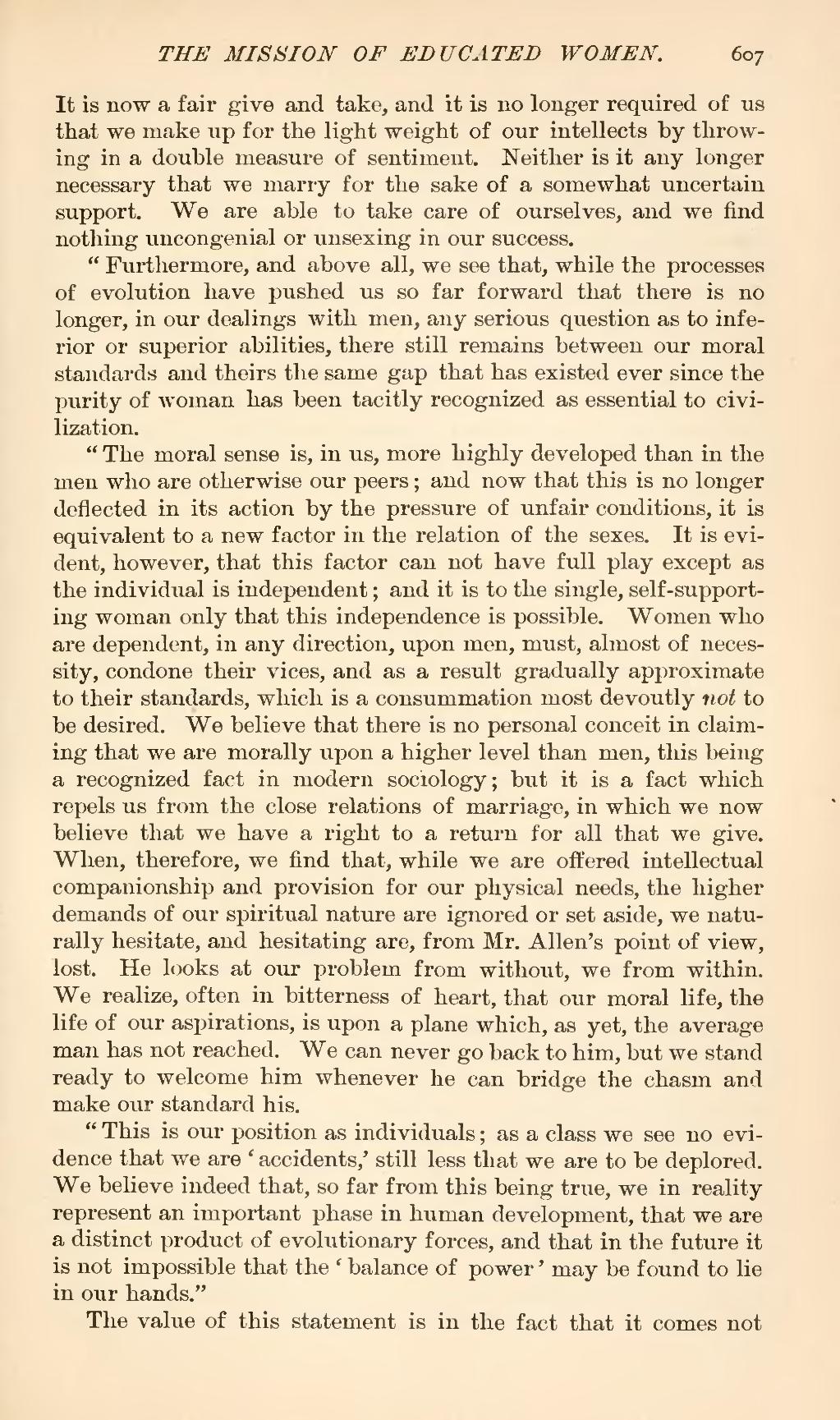It is now a fair give and take, and it is no longer required of us that we make up for the light weight of our intellects by throwing in a double measure of sentiment. Neither is it any longer necessary that we marry for the sake of a somewhat uncertain support. We are able to take care of ourselves, and we find nothing uncongenial or unsexing in our success.
"Furthermore, and above all, we see that, while the processes of evolution have pushed us so far forward that there is no longer, in our dealings with men, any serious question as to inferior or superior abilities, there still remains between our moral standards and theirs the same gap that has existed ever since the purity of woman has been tacitly recognized as essential to civilization.
"The moral sense is, in us, more highly developed than in the men who are otherwise our peers; and now that this is no longer deflected in its action by the pressure of unfair conditions, it is equivalent to a new factor in the relation of the sexes. It is evident, however, that this factor can not have full play except as the individual is independent; and it is to the single, self-supporting woman only that this independence is possible. Women who are dependent, in any direction, upon men, must, almost of necessity, condone their vices, and as a result gradually approximate to their standards, which is a consummation most devoutly not to be desired. We believe that there is no personal conceit in claiming that we are morally upon a higher level than men, this being a recognized fact in modern sociology; but it is a fact which repels us from the close relations of marriage, in which we now believe that we have a right to a return for all that we give. When, therefore, we find that, while we are offered intellectual companionship and provision for our physical needs, the higher demands of our spiritual nature are ignored or set aside, we naturally hesitate, and hesitating are, from Mr. Allen's point of view, lost. He looks at our problem from without, we from within. We realize, often in bitterness of heart, that our moral life, the life of our aspirations, is upon a plane which, as yet, the average man has not reached. We can never go back to him, but we stand ready to welcome him whenever he can bridge the chasm and make our standard his.
"This is our position as individuals; as a class we see no evidence that we are 'accidents,’ still less that we are to be deplored. We believe indeed that, so far from this being true, we in reality represent an important phase in human development, that we are a distinct product of evolutionary forces, and that in the future it is not impossible that the 'balance of power' may be found to lie in our hands."
The value of this statement is in the fact that it comes not

